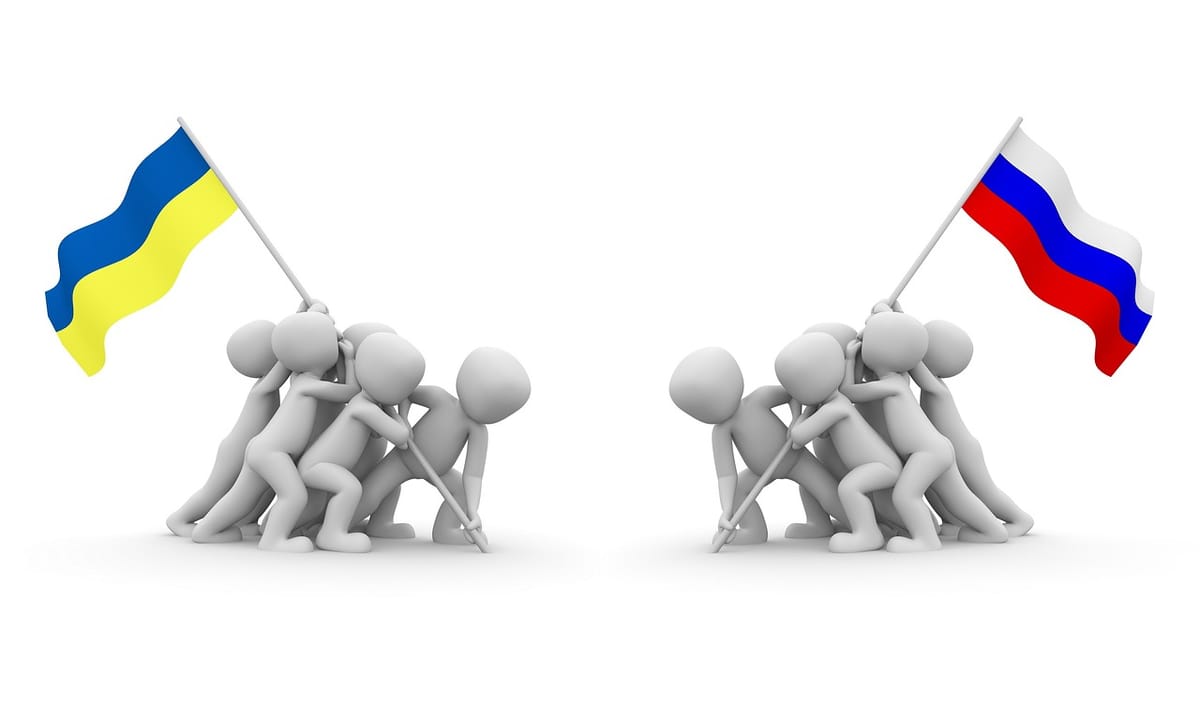Global Economic Impact of Russia-Ukraine Conflict | Analyzing Implications on Energy Prices, Supply Chains, and Geopolitical Tensions
Explore the global economic repercussions of the Russia-Ukraine conflict. Gain insights into energy price fluctuations, supply chain disruptions, and heightened geopolitical tensions. Stay informed on the evolving landscape

The Russia-Ukraine conflict has been a topic of intense global interest and concern. The geopolitical tensions between these two nations have had far-reaching implications on various aspects of the global economy, including energy markets, supply chains, and international trade. In this article, we will delve into the economic impact of this conflict and analyze its implications on key sectors. By understanding the domino effect of the Russia-Ukraine conflict, we can gain valuable insights into the interconnections between politics and economics in the modern world.
The Impact of the Conflict on Global Energy Markets
The Russia-Ukraine conflict has had a significant impact on global energy markets. As Russia is one of the world's largest oil and gas producers, any disruption in its energy supply has a ripple effect on the global economy. The conflict has resulted in supply disruptions, leading to increased energy prices and market volatility. Countries heavily dependent on Russian energy imports have been particularly vulnerable to these fluctuations.

Furthermore, the conflict has heightened concerns over energy security. Countries that rely heavily on Russian energy supplies are now exploring alternative sources and diversifying their energy mix. This shift in energy dynamics has long-term implications for global energy markets and has led to increased investments in renewable energy sources.
Supply Chain Disruptions and Their Economic Implications
The Russia-Ukraine conflict has also caused disruptions in global supply chains, impacting various industries and economies worldwide. The conflict has led to border closures, trade restrictions, and increased transportation costs, affecting the flow of goods and services across international borders.
Supply chain disruptions have created bottlenecks, leading to shortages of critical inputs and components in various industries. This has resulted in production delays, increased costs, and reduced profitability for businesses. Moreover, the uncertainty surrounding the conflict has made it difficult for companies to plan and strategize effectively, further exacerbating the economic impact.
Geopolitical Tensions and Their Effect on International Trade
Geopolitical tensions between Russia and Ukraine have had a profound effect on international trade. The conflict has strained diplomatic relations between these nations and their trading partners, leading to trade disputes, tariffs, and other trade barriers.
The imposition of economic sanctions by various countries has further complicated the trade dynamics. These sanctions have restricted access to key markets, disrupted supply chains, and created market uncertainties. The resulting decline in trade volumes has had a negative impact on economic growth and prosperity.
The Role of Economic Instability in the Conflict
Economic instability plays a significant role in fueling the Russia-Ukraine conflict. Socioeconomic disparities, corruption, and lack of economic opportunities have contributed to the underlying tensions between these nations. Economic grievances have often been a catalyst for political unrest and conflicts throughout history.
The conflict has further exacerbated economic instability in both Russia and Ukraine. The diversion of resources towards military expenditures and the disruption of economic activities have led to job losses, inflation, and increased poverty rates. These economic challenges create a vicious cycle, further deepening the conflicts and making resolution more difficult.
Economic Sanctions and Their Impact on Market Volatility
Economic sanctions imposed on Russia in response to the conflict have had a significant impact on market volatility. Sanctions have targeted key sectors of the Russian economy, including finance, energy, and defense. These measures have restricted access to international markets, limited foreign investments, and caused capital flight.
The uncertainty surrounding the effectiveness and duration of sanctions has created market volatility, making it difficult for businesses and investors to make informed decisions. The resulting fluctuations in exchange rates, stock markets, and commodity prices have added to the economic challenges faced by both Russia and Ukraine.
Analyzing the Effect of the Conflict on Commodity Prices

The Russia-Ukraine conflict has had a direct impact on commodity prices, particularly in the energy sector. Supply disruptions and geopolitical tensions have led to increased prices of oil, natural gas, and other energy commodities. These price increases have had a cascading effect on the prices of other goods and services, affecting consumer purchasing power and inflation rates.
Moreover, the conflict has introduced geopolitical risk into commodity markets. Investors and traders closely monitor developments in the conflict, as any escalation or de-escalation can have immediate effects on commodity prices. The volatility in commodity markets creates challenges for businesses and consumers alike, leading to uncertainties in planning and budgeting.
The Importance of Energy Security in Global Politics
The Russia-Ukraine conflict has highlighted the critical importance of energy security in global politics. Energy has become a tool for political influence and leverage, as countries seek to secure their energy supplies and minimize vulnerabilities.
The conflict has prompted countries to reassess their energy strategies and diversify their energy sources. This has led to increased investments in renewable energy, energy storage technologies, and energy efficiency measures. The pursuit of energy security has become a key driver in shaping global energy policies and international relations.
Economic Forecasting in Times of Crisis
The Russia-Ukraine conflict has posed significant challenges for economic forecasting. The uncertainties surrounding the conflict, such as the duration, intensity, and potential outcomes, make accurate economic predictions difficult.
Economists and analysts face the challenge of incorporating geopolitical risks and their economic implications into their forecasting models. The interplay between political events, economic indicators, and market dynamics requires a multidisciplinary approach to economic forecasting. Accurate forecasting is crucial for policymakers, businesses, and investors to make informed decisions and mitigate risks during times of crisis.
The Relationship between International Relations and Economic Impact
The Russia-Ukraine conflict underscores the intrinsic relationship between international relations and economic impact. Political events and conflicts can have profound consequences on the global economy, affecting trade, investments, and market stability.
The interconnections between politics and economics highlight the need for policymakers and stakeholders to consider the broader geopolitical context when formulating economic policies and strategies. A comprehensive understanding of the political economy is crucial for managing risks and seizing opportunities in an interconnected world.
Understanding the Long-Term Implications of the Russia-Ukraine Conflict
In conclusion, the Russia-Ukraine conflict has far-reaching economic implications. The impact of the conflict on global energy markets, supply chains, and international trade highlights the interconnectedness of various sectors in the global economy. The conflict has exposed vulnerabilities and prompted countries to reassess their energy strategies, diversify supply chains, and enhance energy security.
Economic forecasting during times of crisis becomes more challenging, as geopolitical risks introduce uncertainties into the equation. The relationship between international relations and economic impact emphasizes the need for a holistic approach to economic policymaking.
By understanding the domino effect of the Russia-Ukraine conflict, we can gain valuable insights into the complexities of the modern world and make informed decisions to navigate the challenges and opportunities that arise from geopolitical events. It is crucial for policymakers, businesses, and individuals to remain vigilant, adaptable, and proactive in the face of such conflicts to mitigate risks and promote stability in the global economy.
CTA: As the Russia-Ukraine conflict continues to unfold, it is essential to stay updated on the economic implications and global dynamics. Stay informed and make informed decisions to navigate the uncertainties by following reliable sources of information and engaging in constructive discussions with experts in the field




